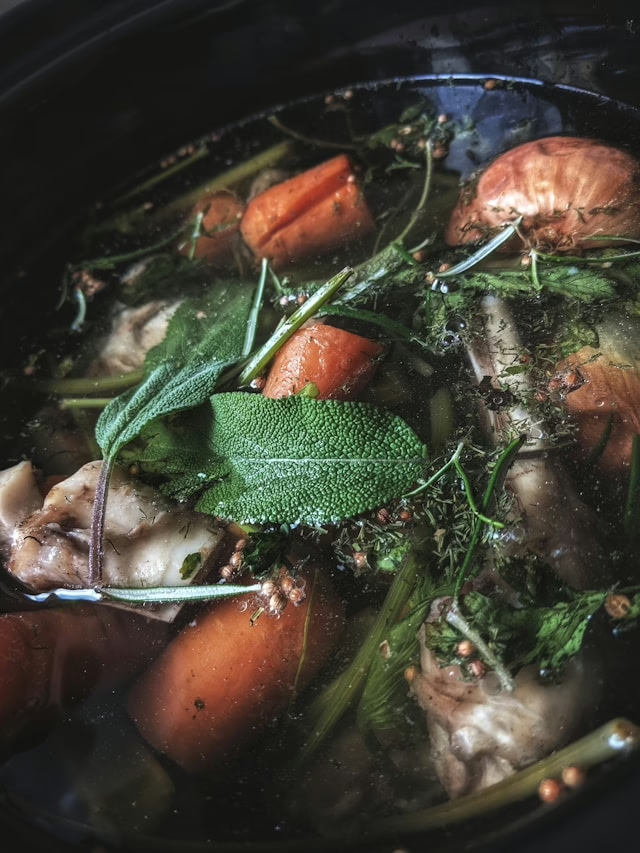Winter is brutal on bodies. Colds, flus, respiratory infections, slips and falls, even surgeries. Winter recovery isn’t just about waiting it out—it’s about rebuilding what got depleted.
Illness and injury drain nutrients, disrupt your gut, and sap your resilience.
If you don’t replace what you lost, you stay stuck in fatigue, slow healing, and that feeling like you never fully bounce back.
Start with food
Your digestion needs support, especially after stress or antibiotics.
Think warm, simple meals you can actually absorb:
- Broths, soups, stews.
- Cooked vegetables, soft proteins, easy fats.
- Leave the giant raw salads for spring when your body is stronger.

Protein repairs tissue
Focus on pastured meats, eggs, bone broth, and whey protein if your appetite is low.
Healthy fats—fish, olive oil, avocado, pastured dairy—help rebuild nerves and fuel recovery.
Carbs from cooked fruits, sweet potatoes, and greens provide energy without the crash.
Bring in targeted nutrients
- Thiamine helps refill what stress burned up.
- Magnesium calms muscles, supports your heart, and steadies your system.
- Zinc speeds wound healing and bolsters immunity.
Herbs can help move the sludge out
Cleavers, red clover, and burdock support lymph flow.
Milk thistle and dandelion root fortify your liver.
Adaptogens like eleuthero and ashwagandha help you rebuild resilience instead of running on fumes.
Don’t skimp on the basics
Sleep is non-negotiable.
Gentle movement—walking, restorative yoga—keeps circulation moving and clears metabolic waste.
Sunlight helps regulate your rhythm.
Water helps everything work better.
Most importantly, recovery takes time.
Winter recovery isn’t about detoxing or punishing your body for getting sick.
It’s about strategic replenishment—so you can feel like yourself again instead of some half-charged version you barely recognize.
If you’re tired of guessing what your body needs to heal, I’m here when you’re ready.
